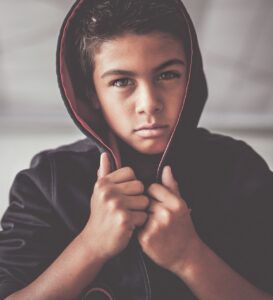Having children in practice is a whole different ball game to that of having them in theory. You can have the loftiest intentions, which all fall away in the difficulties of life. Vanessa Raphaely and Karin Schimke have put together a book of advice for parenting tweens and teenagers as well as young adults, based on real parent situations in The Village Facebook group. I think every parent will get something different out of this book, but I put together a few parenting gems that resonated with me.
Parenting values for tweens and teenagers
If you have a good idea of where you are coming from, then you know where to draw the line or how to proceed.
Judy MacGregor, herself a South African mom blogger at Fun Mamma SA, says we should model the behaviour that we want to see.
In the light of very difficult behaviour, one of the villagers has this advice:
- Stick together as a couple, don’t allow the behaviour to cause division
- Keep your boundaries. They can disagree, but not disrespect.
- Show the love and empahsise it is the behaviour, not him.
- Pray for guidance and wisdom. If you have to change schools, so be it.
Technology rules

There are a whole lot of really useful rules on page 76-78. It’s mostly about being aware of all the new things (AI, porn) and learning to manage and accept them. One thing that was useful for me as a parent: no phones in the bedroom at night. I think this is one practical thing that we can do to keep some control.
Also see our post on healthy gaming and How to Advocate for your Adolescent Teenager, which has some good ideas too.
The book also recommends Klikd.co.za as a good resource. I found their app reviews useful.
Going out rules
Vanessa has put together some very useful points on p144-147. Another practical suggestion she has is using an app to keep track of them such as Find my Phone. Or make sure you have frequent contact. Get the numbers of the people your child is with.
The important thing is not to judge the drinking: rather to give them hints and tips to manage it. To drink cider instead of vodka. Drink water inbetween. Not to accept drinks from strangers. And to make them aware that they can call you at any time to pick them up.
Communication insights
There were some really good ideas to handle your teen when they are being downright rude. Ann Ellis Brown, an admin on the group, paraphrased Megan de Beyer’s “Raising Men” idea: you look back and see the three year old you once loved still inside and say with curiosity: “I hear you… I’m really interested to know what you think about what just happened and what it says about the adult you are becoming. Does it make you proud? Don’t answer now. Think about it. And when we’re both calm come back and tell me.” I think I really liked this because it acknowledges the difficulty of the stage they are in, as well as pointing a better way forward.
I also liked this one from Phillippa Barnard: “My very recently learnt lessons from fighting with a child: in a fight we often listen to have a response, and we don’t listen to hear what the other person is saying. At the same time, a fight is often a trigger for people to say things that they normally keep to themselves, because they know it is not appropriate or the right thing to say. But if a theme comes up again and again, it’s a thing. Sit down to understand where it comes from, and figure it out.”
The lonely teen
For some reason, and I’m not sure why, I’m not all that worried about drinking or sex. Maybe a bit worried about tech. But the thing that does worry me is: will Nicky have friends, will they treat him well, and how will he handle the bullies?
There’s a very poignant passage on p133 which is really worth the read. Because when the friends fall away, you will be there.
More tears. Many nights, both of us, she and me, tossing and turning, spooning, in her single bed. To comfort both of us, let me be honest here. It wasn’t only her in pain. Spooning while her schoolmates were at the sleepovers she wasn’t invited to.
And then?
She became accustomed to the pain that life provides as lessons, if you choose to accept them. She’s benefited from doing the work that those years in therapy demanded. She became better at finding her particular joy, without waiting for others to provide. She’s less bothered by the slings and arrows of adult reality that I notice every now and then seem to pierce her peers.
Trying new things
Another quote: “Remember, they are kids. They will mess up, but just keep them safe and don’t try to find some deeply rooted issue to be the reason they rebel, it’s mostly just because they want to try new things and want to look cool for the cute girl or hot guy in their class.”
No magic recipe
Anthea Katzeff said “There is no magic recipe. There is no formula for raising good humans because every child and parent is different, every situation unique. What makes us human is the ability to adapt to any situation and hopefully make the right choices (mostly) and when we don’t we get up and try again.”

Conclusion
I think what was so nice about this book was that these were real parents in the trenches of the tween / teenage life. They were supporting and encouraging each other through a stage which will eventually pass. And that is what we really want from parenthood – other parents cheering us on through each challenging stage. You can read it on Kindle here. Also available at bookstores for a suggested price of R330.






Leave a Reply